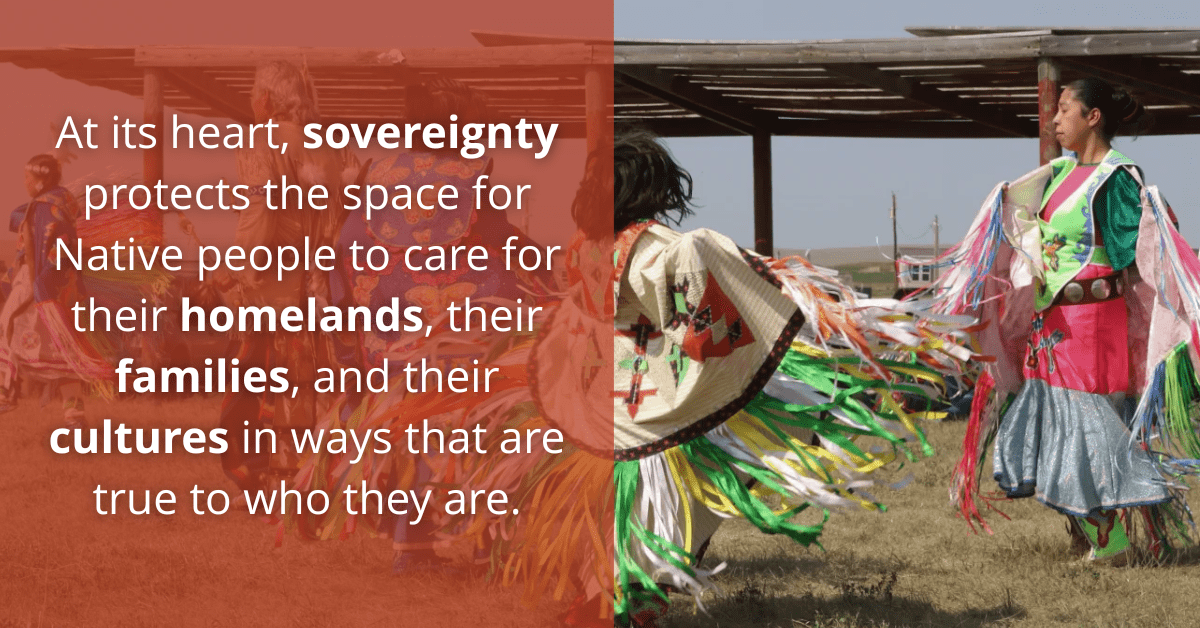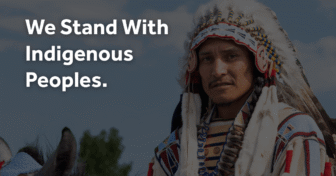For Native communities, sovereignty is about more than governance. It is the right to live as a people in ways that honor traditions, values, and knowledge passed down through generations. Sovereignty means making decisions for the well-being of the community without interference from outside forces. It is not something that was given to tribes—it is something they have always carried as nations that existed long before the United States.
At its core, sovereignty creates the space for Native people to care for their homelands, families, and cultures in ways that remain true to who they are. It is essential for survival and flourishing, ensuring that Native nations can thrive into the future.
Sovereignty shapes many areas of life. It protects the power to teach Native languages in schools, to openly practice ceremonies, and to pass down ways of life to the next generation. It also supports the creation of community-driven economies and responsible stewardship of natural resources, rooted in traditional knowledge.
There are many kinds of sovereignty, each reinforcing the other:
- Political sovereignty safeguards self-governance and decision-making power.
- Cultural sovereignty protects traditions, stories, and spiritual practices.
- Economic sovereignty builds independence and resilience.
Together, these forms of sovereignty strengthen Native communities, preserve identity, and ensure that generations to come will continue to live as self-determined nations.







